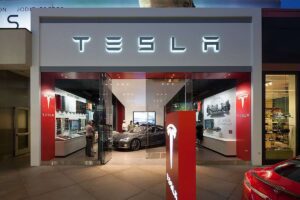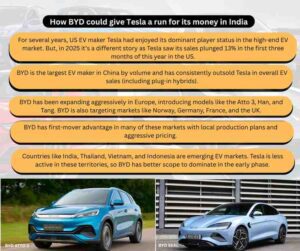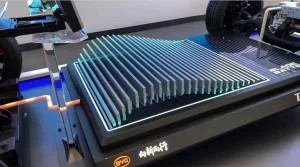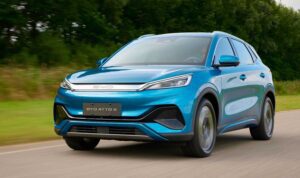As Tesla car sales globally are faltering due to factors like increased competition, Elon Musk’s political activities, and concerns about the company’s future, entering a new market is one of the logical strategies.

It is no secret that US-based EV maker Tesla has been exploring the Indian market since 2016 but has not committed to it. In 2021, Tesla officially registered its Indian subsidiary, Tesla India Motors, and Energy Private Limited, in Bengaluru, Karnataka. On several occasions, Tesla has cited that high import duties (up to 100% on fully imported cars) and the lack of widespread EV infrastructure have delayed Tesla’s entry into this country. A Rs 35 lakh Tesla model could cost the Indian consumer Rs 70 lakh or more, given the current import duty structure.
However, manufacturing and selling Tesla cars in India is a second option, but that requires a sound business model as investments are huge and the rate of return is low. Elon Musk’s reluctance to commit outright is understandable at this juncture.
For India, the first indication came a few weeks ago when the EV maker finalized two rental properties—one in BKC in Mumbai and the other at Aero city in Delhi—for the brand’s signature retail outlets and activated the hiring process through LinkedIn.

The signing of the lease contract for the 4,003-square-foot Mumbai showroom in February 2025 is a significant step in Tesla’s market entry strategy in India. This showroom will serve as a key retail outlet for the brand, enhancing its visibility and accessibility to potential customers.
Tesla India has initiated the homologation process for the Model Y and Model 3 as part of the regulatory processes. This process, a mandatory step for new vehicles to be sold in the country, ensures that the vehicles comply with local emissions, safety, and roadworthiness regulations, thereby gaining approval for sale in the Indian market.
How BYD could give Tesla a run for its money in India
For several years, US EV maker Tesla has enjoyed its dominant player status in the high-end EV market. But, in 2025, it’s a different story as Tesla saw its sales plunge 13% in the first three months of this year in the US, the largest drop in deliveries in its history.
One of the top global competitors to Tesla is BYD, whose mass-market appeal, cost-effective manufacturing, and aggressive expansion strategy make it a formidable player, promising an exciting future for the EV market in India.
BYD vs. Tesla: The global battle
BYD has now surpassed Tesla in key financial metrics. In 2024, the Shenzhen-based automaker reported a 29% rise in revenue, reaching 777 billion yuan ($107 billion; £83 billion)—overtaking Tesla’s $97.7 billion revenue. This growth was fueled by BYD’s strong hybrid vehicle sales, giving it an edge in both EV and hybrid markets.
Meanwhile, global automakers are closely watching the impact of the Trump Administration’s new tariff policy, which imposes a 25% tariff on Chinese EVs. While this move aims to benefit domestic US manufacturers, China’s rising EV and battery technology expertise and aggressive expansion into Europe, Southeast Asia, and Latin America could dampen Tesla’s long-term aspirations.
BYD’s plans for India: A Game Changer?
BYD market capitalization has surged 40% in 2025 to $165.7 billion, surpassing the combined valuation of India’s top five automakers, which stands at $151.52 billion.
BYD’s Manufacturing Ambitions in India hold great promise for the company’s future.
Cash-rich BYD entered the Indian market in 2017 as BYD India Private Limited, assembling its EVs through a Completely Knocked Down (CKD) assembly route. In 2023, the company submitted a $1 billion proposal to set up an EV manufacturing facility in India, but the investment proposal was declined.
Rumors are circulating that BYD is considering establishing a production unit near Hyderabad. If this deal is finalized, Telangana could become the first Indian state to host a full-fledged BYD factory. The state government has reportedly suggested three potential sites for the factory. However, BYD has denied these reports, labeling them as ‘untrue’ in a statement on its official WeChat account.
How BYD could overtake Tesla in India

Price advantage in a cost-sensitive market
India’s high import tariffs make EV affordability a key factor. Tesla’s premium pricing limits its appeal, whereas BYD can introduce cost-effective electric cars tailored to the Indian market.
Things might change as India plans to lower import tariffs on electric cars, rejecting requests from local automakers to delay such cuts by four years. Government and industry sources told Reuters that New Delhi wants to quickly close a trade deal with the United States.
Wide product portfolio
BYD’s wide product portfolio, unlike Tesla’s focus solely on passenger vehicles, positions the company to dominate multiple segments in India, a prospect that should inspire confidence in its market dominance.
Battery Technology edge (with graphics)

EV competition is mainly about battery performance, range, and cost. BYD’s in-house Blade Battery technology offers higher safety, longevity, and efficiency than Tesla’s current battery technology.
Brand & consumer trust building

BYD is still an emerging brand in India. While Tesla enjoys strong brand power, BYD must invest heavily in marketing, dealership networks, and after-sales support to win consumer trust.
Can BYD Dethrone Tesla, Vin fast, or the other domestic brands in India?
Tesla’s entry into India has been slow due to regulatory challenges and its premium positioning. On the other hand, BYD is aggressively pushing forward with localized production and an affordable EV lineup. However, it remains to be seen how government policies, consumer preferences, and competition from Indian brands like Tata Motors and Mahindra will shape the battle for India’s EV market.
#TeslaIndia #BYDvsTesla #EVRevolution #ElectricVehiclesIndia #FutureOfMobility #GreenTransport #EVMarket #Tesla2025
Image Courtesy
The post uses all third-party images to make it reader-friendly. The author never claims ownership of any of them. Image courtesy is given to every image used in the story. Prime Avenue, a professional content writing agency, is dedicated to providing readers with the latest updates and information through quality content.
Please read our other automobile blogs on our blog page
About the author:
British-Indian Chandan Basu Mallik has been an automotive petrol head and journalist/editor for over thirty years. He has worked in the UK and the Middle East and is currently in India. You can learn more about his work on his LinkedIn profile: https://www.linkedin.com/in/chandan-mallik-34aa47320/. You can write to Chandan at theprimeavenuekol@gmail.com